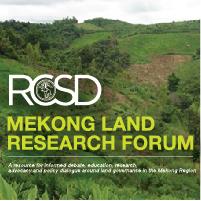Resource information
ABSTRACTED FROM EXECUTIVE SUMMARY: Land rights systems in Southeast Asia are in constant flux; they respond to various socioeconomic and political pressures and to changes in statutory and customary law. Over the last decade, Southeast Asia has become one of the hotspots of the global land grab phenomenon, accounting for about 30 percent of transnational land grabs globally. Land grabs by domestic urban elites, the military or government actors are also common in many Southeast Asian countries. Large-scale land grabs are facilitated by a coalition of investor-friendly host governments, local political and economic elites and a variety of players from the ‘Global North’, including multinational corporations, international development banks, commercial financial institutions and bilateral donors and development agencies. Weakly recognized customary rights in combination with state ownership of large portions of the national territory (e.g. forestland in Indonesia, Myanmar, Lao PDR and Cambodia, public domain land in the Philippines) allow the respective governments to categorize the people living on these lands as ‘illegal occupants’. Thus the purpose of this comparative land policy study is, first, to provide a comprehensive overview of the current situation of statutory and customary land rights systems in six Southeast Asian countries, Cambodia, Indonesia, Lao PDR, Myanmar, Philippines and Vietnam and, second, to discuss the potential of national and international legal frameworks and guidelines to reduce land grabbing, dispossession and displacement in these countries.


